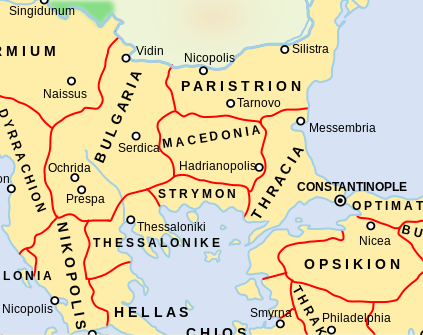Y
Yunan
Guest
Wie schon gesagt: Die Entscheidung des IGH hat das Veto-Recht Griechenlands bekräftigt.
Mir wolltet ihr es ja nicht glauben.
Ich finde, man sollte FYROM mal ganz saftig verklagen und Geschichtskommissionen engagieren, die den gestrickten Mythos der FYROMskis zu zerpflücken. Wenn das geschehen ist und FYROM sich vor aller Welt lächerlich gemacht hat, dann geben wir unser Veto-Recht sicherlich gerne auf.
Poste ruhig weiter deine MIA/Mina-FYROMski-Pyromanski-Quellen.
Identitätskrise Ahoi!
http://www.youtube.com/watch?v=n9x7UYGipSA&feature=related
Sag mir, wer wärt ihr schon, wenn ihr nicht seit 20 Jahren quäcken würdet und fremdes Eigentum an euch reißt? Nichts, niemand wärt ihr. Jetzt haben die Leute wenigstens mal gehört, dass es da ein kleines jugoslawisches Völkchen gibt, dass sich tatsächlich für die Nachfahren der Makedonen hält.
Mir wolltet ihr es ja nicht glauben.
Ich finde, man sollte FYROM mal ganz saftig verklagen und Geschichtskommissionen engagieren, die den gestrickten Mythos der FYROMskis zu zerpflücken. Wenn das geschehen ist und FYROM sich vor aller Welt lächerlich gemacht hat, dann geben wir unser Veto-Recht sicherlich gerne auf.
Poste ruhig weiter deine MIA/Mina-FYROMski-Pyromanski-Quellen.
Identitätskrise Ahoi!
http://www.youtube.com/watch?v=n9x7UYGipSA&feature=related
Sag mir, wer wärt ihr schon, wenn ihr nicht seit 20 Jahren quäcken würdet und fremdes Eigentum an euch reißt? Nichts, niemand wärt ihr. Jetzt haben die Leute wenigstens mal gehört, dass es da ein kleines jugoslawisches Völkchen gibt, dass sich tatsächlich für die Nachfahren der Makedonen hält.
Zuletzt bearbeitet:



